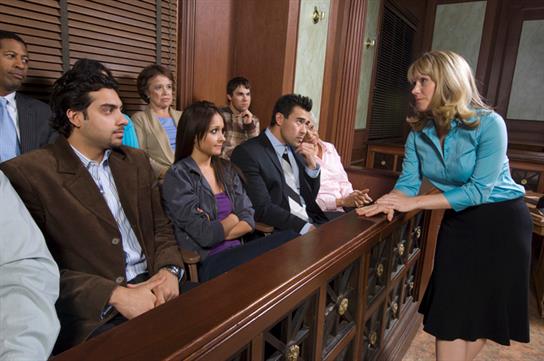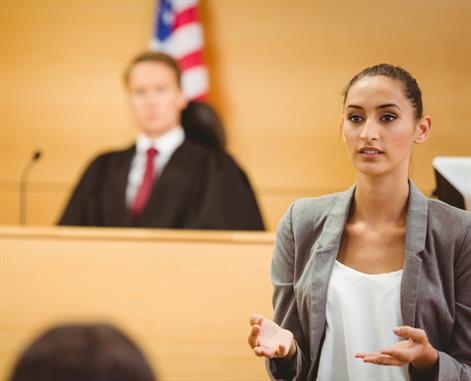HOW TO WRITE A PROSECUTION CLOSING ARGUMENT FOR MOCK TRIAL
HOW TO WRITE A PROSECUTION OPENING STATEMENT FOR MOCK TRIAL
Here is a template and suggestions for writing a prosecution opening:
THE INTRODUCTION
Good afternoon, my name is so-and-so, and it is my pleasure to represent the State of Columbus and to serve as a prosecutor on this very important case. On June 14th, 2018, the defendant in this matter [describe in detail what he or she is alleged to have done]. [You may choose to point to the accused at this time [and other times of the trial] for dramatic effect.] At the conclusion of the case, and after you have heard all the evidence, we are confident that you will return a verdict of guilty.

THE THEME:
Ladies and gentlemen, this case is about… [a man who cannot control his anger] or [a woman whose own greed got the better of her] or [an individual who is feigning insanity because he was caught red-handed and has no other possible defense.] Try to summarize your case and your position in a sentence or two. It is difficult to think about themes in the abstract. When you see court cases on the TV news or on Law and Order think about the themes of those cases.
SUMMARIZE EACH WITNESS:
Examples:
Members of the jury, the State will call three different witnesses in this trial. We will call Detective Smith who will testify that he was on duty in Jefferson County on the night of the murder, and he witnessed the defendant’s car fleeing the scene at high speed. While we will admit the detective did not see who was in the car, the prosecution will be calling the victim’s neighbor to the stand, and the neighbor will explain that she clearly saw the defendant flee the crime scene with a weapon still in his hand. Lastly we will call a very experienced psychiatrist who will testify that he did a thorough mental health evaluation of the defendant in this matter. The psychiatrist will testify that the accused as sane at the time of the killing, and suffered from no medically recognized psychological defect.
or
Members of the jury, the State will call three witnesses to the stand. The first witness will be Mr. Hernandez who will testify that he was at his place of work at 7-11 when the defendant attacked at the check-out counter and did so without provocation. We will call the emergency room doctor who will testify that Mr. Hernandez sustained a broken nose and an orbital fracture. Lastly, the prosecution will call the defendant’s girlfriend to the stand who will testify that the defendant boasted about robbing Mr. Hernandez when he returned home late that night.
[These samples I have provided are obviously quite brief. You will want to provide a lot more details. Studies show that many jurors are likely to make up their mind about a case after simply hearing the opening statement. After a person has made up their mind, it can be hard to change their opinion. You will want to highlight all the important evidence you have. But keep in mind the time limits that your mock trial competition sets. Work with your teammates in this respect.]
CONCLUSION:
After you have heard all the evidence, we would ask that you find the defendant guilty as charged on all counts. Thank you.
HOW TO WRITE A DEFENSE OPENING STATEMENT FOR A MOCK TRIAL
INTRODUCTION:
Good afternoon members of the jury, my name is so-and-so, and I together with my colleagues, represent the defendant in this case [name]. The defendant stands here today wrongly accused of the crime of______, a very serious matter. At the end of this trial, we are going to ask you to render a verdict of not guilty, the only appropriate verdict.

THE THEME:
Members of the jury, this case is of [mistaken identity] or [My client punched Mr. Jones, but did so out of self-defense] or [my client did stab her husband, but was temporarily insane due to mental illness]. [There are a limited number of defenses to a criminal charge in a court of law. I cannot list them all here, but a defense lawyer should always be able to summarize his or defense in one or two sentences. Sometimes it is the position of the defense that the defendant is not guilty of the charge as alleged, but is guilty of a lesser charge. (For example, my client struck the victim with a stick, but the stick was too small to count as a “assault with a deadly weapon.”)]
CONTRADICT THE STATE’S THEORIES:
A common defense attorney strategy in opening statements is to start critiquing the state’s case, and letting the jury know that there are two sides to the story. Remember that as a defense attorney, you get the last word in opening statements. The prosecutor has to go first and unlike closing arguments, they may not speak again and rebut what you have to say. So take the opportunity to shoot holes in their case. In theory, you can reserve your opening statement until after the prosecution has rested, but this is rarely done (particularly in mock trial competitions). So how do you contradict the prosecutor’s opening? Here are some examples:
Members of the jury the prosecutor explained in her opening statement that her witness Mrs. Wong will testify that she witnessed the robbery from across the parking lot and she identified my client as the guilty party. However, Mrs. Wong will herself admit that it was very dark and rainy that night, and that she admitted she was only “90 percent sure” it was my client.
Or:
The prosecutor explained in his opening statement that my client confessed to the murder. However, this “confession” only happened after my client was with the police for 14 hours straight, and was kept up all night without any food or even any water.
So it is your job from the start to explain to the jury that there are two sides to the story.
Having coached mock trial for over 20 years, one thing I have noticed is that in every mock trial packet, there are little inconsistencies in both sides of the case for lawyers to point out in their presentations. However, it also does seem like there are some inconsistencies that are not terrible relevant, and you do not have to cover all of them due to the time restrictions. Even in real trials, lawyers make tactical decisions to not cover everything they possible could due to the limited attention span of jurors.
SUMMARIZE EACH WITNESSES’ TESTIMONY:
Members of the jury, as the defense attorney, I will call three witnesses to testify. My first witness will be Doctor Jerome McGinnis. He will testify that he has been a psychologist for 30 years, and his specialty is forensic psychology. He will testify that he did an evaluation of my client and found him to be insane due to paranoid schizophrenia. My second witness will my Martha Jackson, who is a school psychologist at Lakeside High, where my client went to school. She will testify that my client suffered from mental illness dating back to 1999. Lastly my third witness will be Antonio Garza. Mr. Garza will testify that he was roommates with my client when he was in college, and he will testify as to the psychological breakdown that my client suffered during his years at Columbus University.
Laying out each witness’s expected testimony sequentially is a little formulaic and can come across as a little dry sometimes. Overreliance on this structure will mean you are unlikely to win a mock trial national championship, but if this is your first competition, a structure like this will be a good starting point. As you progress in the competition, you can vary from the formula to make it a little unpredictable and think on your feet a bit more.
CONCLUSION:
At the conclusion of this trial, the defense will ask that you find that our client is not guilty. The prosecution will not meet their burden of proof. Thank you.
No comments:
Post a Comment